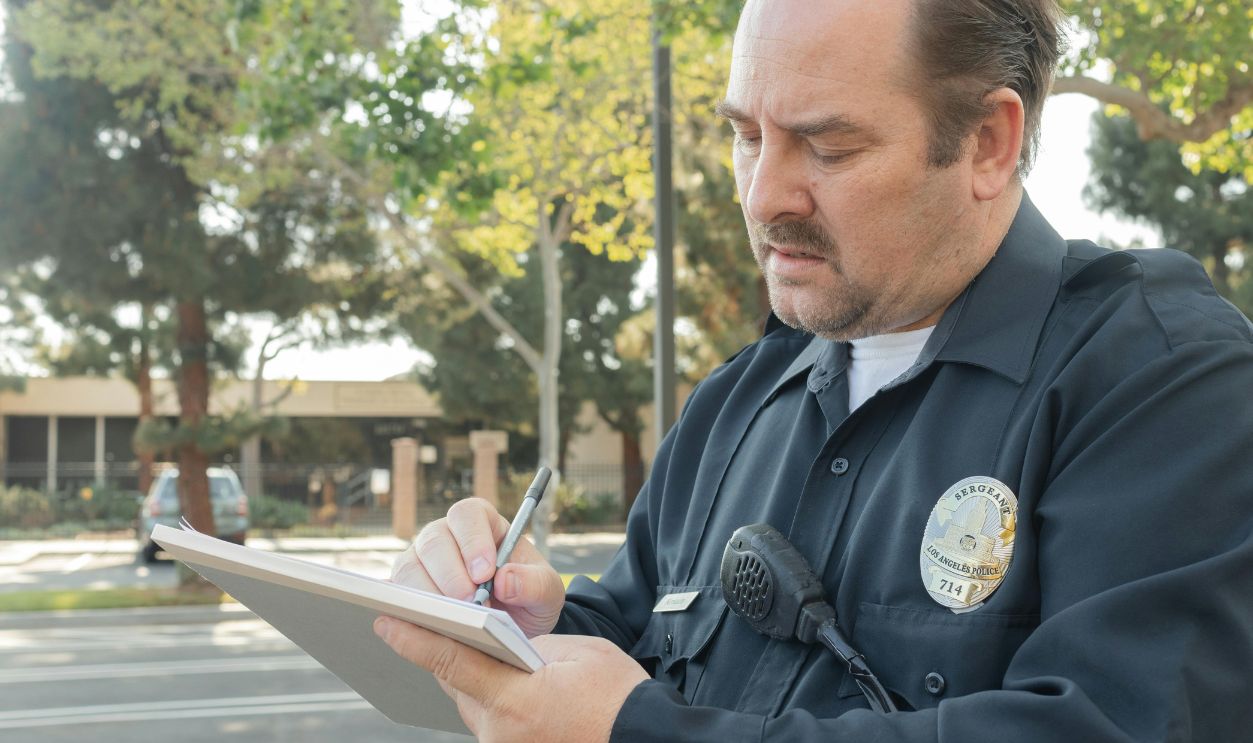Co-Signing Gone Wrong
You thought you were doing something kind, maybe even romantic. They needed a car, their credit wasn’t great, and you had the better score. So, you co-signed. But fast forward and now they’re gone. The car may be gone too. But you know what’s still around? The debt. And, unfortunately, the lender doesn’t care about your breakup story. If you’ve found yourself stuck paying for your ex’s car, you’re not the first, but thankfully, you do have options.

What Co-Signing Actually Means
Co-signing isn’t just a promise to help someone out; it’s a full-on legal commitment. When you co-sign, you agree to be equally responsible for the loan. The lender doesn’t view you as a backup payer or a nice friend helping out. They see two borrowers, each one 100% liable. If they miss a payment, that late mark lands on your credit report just as if you’d skipped it yourself. And if the car gets repossessed, that’s your problem too. It’s one of those financial favors that sounds generous in the moment but can haunt you for years if things go south.
First Things First: Find Out Who’s On The Title
Before you make any decisions, figure out whether your name is on the car’s title, the loan, or both. Being on the loan means you’re responsible for the debt. Being on the title means you’re a legal owner of the car. If you’re on both, you share ownership and liability, which gives you some leverage. But if you’re only on the loan and not the title, you’re stuck footing the bill for a car you don’t even own. You can verify this through your state’s DMV or by looking at the original title documents.
If You Still Have The Car
If the car is sitting in your driveway, you’re in a much stronger position. You may not love making payments on a car that reminds you of your ex, but at least you have control over the asset. Continue making the payments to protect your credit and prevent repossession. You can then look into refinancing the loan under your name alone, assuming your credit and income qualify. That would remove your ex from the equation entirely.
Another option is to sell the car and use the proceeds to pay off the loan balance. If the car is worth more than what’s owed, you can walk away debt-free, and maybe even with a little extra cash. The key here is to take action quickly before your ex tries to reappear and complicate matters.
If They Took The Car And You Don’t Have Access
If your ex took the car and you’re left with the debt, things get trickier. Your first move should be to contact the lender and explain what happened. Let them know that you’re a co-signer, that the primary borrower has possession of the car, and that you’re concerned about the loan’s status. Ask whether the payments are current and confirm that your mailing address is the one they should use going forward. You should also check your credit report to see if there have been any missed payments or negative activity.
Even if you feel angry or helpless, do not stop making payments until you have a concrete plan. Missed payments will only damage your credit further, and repossession could still leave you owing thousands in deficiency balances after the car is sold.
When The Car Is Gone But You’re On The Title
If your name is on the title and your ex has the car, you may technically have the right to reclaim it. But be careful. The last thing you want is to make the situation worse by trying to retrieve it without understanding your legal standing. Laws vary by state, and taking the car yourself could be considered theft if done incorrectly. The safest route is to talk to local law enforcement first and explain the situation. They can help determine if the car is considered stolen or if you need to pursue a civil order to get it back. In some states, you can hire a licensed repossession company or file a replevin action (a court order to recover property). Whatever you do, keep every interaction with your ex and the lender documented in writing.
If The Loan Is In Default
If your ex has stopped paying and the lender is contacting you, time is of the essence. Ignoring the situation will only make things worse. Stay in touch with the lender, explain what’s happened, and see if they can offer any solutions like a payment plan or temporary deferment. In some cases, you might be able to negotiate to take over the loan directly. If repossession is inevitable, you could consider a voluntary repossession. It still hurts your credit, but it’s less damaging than having the lender forcibly repossess the car.
Refinancing As An Escape Route
Refinancing is the cleanest way to untangle yourself from a co-signed car loan, especially if you still have the car. If you can refinance in your own name, it removes your ex from the loan completely. The challenge, of course, is that refinancing requires good credit and stable income. If your ex was the one with weaker credit, you might already be in a good position to take this step. Talk to your lender about eligibility or shop around with other banks and credit unions for better terms. Even if the interest rate is slightly higher, the peace of mind might be worth it.
Selling The Car: The Simplest Way Out
If refinancing isn’t possible, selling the car may be your next best option. If you can sell the car for at least the amount owed on the loan, you can pay it off and end the financial tie. If the car’s value is lower than the balance (known as being upside down), you’ll need to pay the difference. While paying money to walk away might sting, it’s often cheaper than years of payments on a loan you didn’t sign up to carry alone.
The Legal Option: Suing For Reimbursement
If you’ve been left paying for the car while your ex drives around debt-free, you may be able to sue for reimbursement. This usually happens in small claims or civil court, depending on the amount. You’ll need documentation: the loan agreement, proof of your payments, and evidence of your ex’s responsibility (like text messages or emails where they agreed to pay). If the court sides with you, they can issue a judgment requiring them to repay you. Of course, collecting that money is another challenge entirely, but having a legal ruling in your favor can help if you ever need to garnish wages or pursue collection later.
How This Affects Your Credit
Even if it feels unfair, the loan’s performance will continue to impact your credit score as long as your name is on it. Every late payment shows up on your report, and every default hurts your score. Protect your credit by staying current, even if your ex isn’t. Over time, consistent payments can help minimize the damage and keep your credit from collapsing entirely.
Talking To The Lender (And Why You Should)
It’s tempting to avoid the lender out of embarrassment or frustration, but open communication is your best tool here. Lenders deal with these situations all the time, and many will work with you to find a solution. Explain what happened and ask if they offer co-signer release programs, refinancing, or payment arrangements. Being proactive shows good faith, and can prevent the situation from escalating into collections.
Filing A Police Report
If the car is gone and your ex has stopped communicating, filing a police report might be necessary. This isn’t about getting them arrested; it’s about protecting yourself legally. Having a report on file shows that you didn’t willingly give up the car, which could be crucial if the lender or a court questions your involvement. It can also help law enforcement recover the vehicle if it’s later abandoned or resold illegally.
When To Get A Lawyer Involved
If you’re being harassed by collectors, facing a lawsuit, or unsure about your legal rights to the car, it’s time to talk to a lawyer. A consumer or contract attorney can help you navigate state-specific laws, communicate with lenders, and draft formal letters to your ex. Many lawyers offer free consultations or flat-rate services for these types of cases, and a short conversation could save you from years of financial headaches.
The Emotional Fallout
It’s okay to be angry; after all, you were trying to help, and it backfired. The emotional side of financial betrayal can be just as heavy as the debt itself. Remind yourself that this isn’t your fault. You acted out of trust, not foolishness. Once you’ve handled the practical side of things, give yourself space to recover emotionally. A financial mess is fixable; your peace of mind is what really matters.
Protecting Yourself Next Time
The painful truth is that co-signing is a high-risk move. The next time someone asks you to co-sign, think long and hard about whether you’d be willing to pay the whole loan yourself. If the answer is no, the answer to co-signing should be no, too. There are other ways to support someone financially without tying your credit and future to theirs.
Cutting The Final Financial Ties
Once you’ve refinanced, sold the car, or settled the debt, take the final steps to separate your finances from your ex. Close any joint accounts, change passwords, and remove shared access to banking apps or credit cards. You can’t move on financially if they still have any access to your accounts.
Final Thoughts
Co-signing a loan might start as a gesture of love or trust, but it’s really a business decision with legal strings attached. When that relationship falls apart, the contract doesn’t. It’s not fair, but it’s fixable. Whether you refinance, sell, or get legal help, the most important thing is to act quickly and protect your credit. Treat this as both a financial cleanup and a lesson in boundaries. Because at the end of the day, your money, your name, and your credit are worth far more than any relationship that leaves you paying for someone else’s mistakes.
You May Also Like:
I co-signed on my sister's mortgage. She stopped paying. Am I on the hook?
























